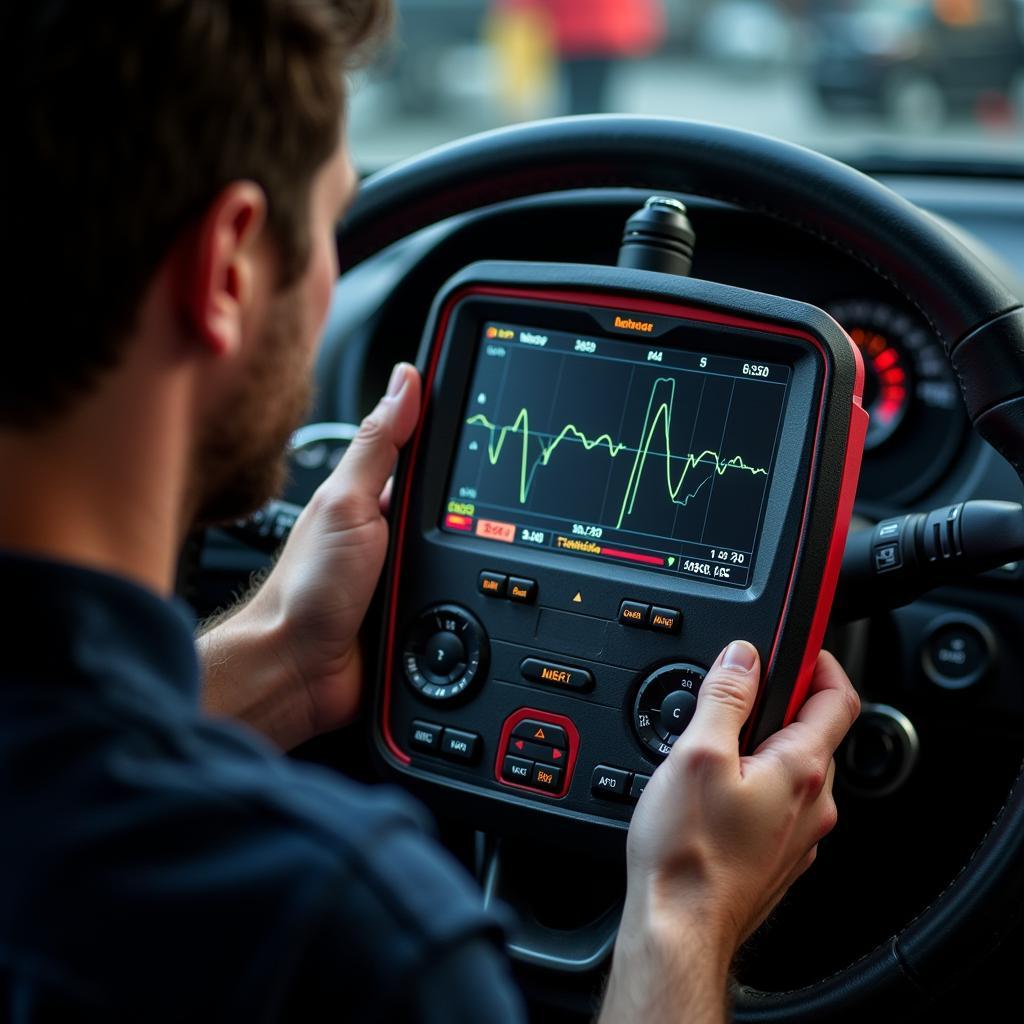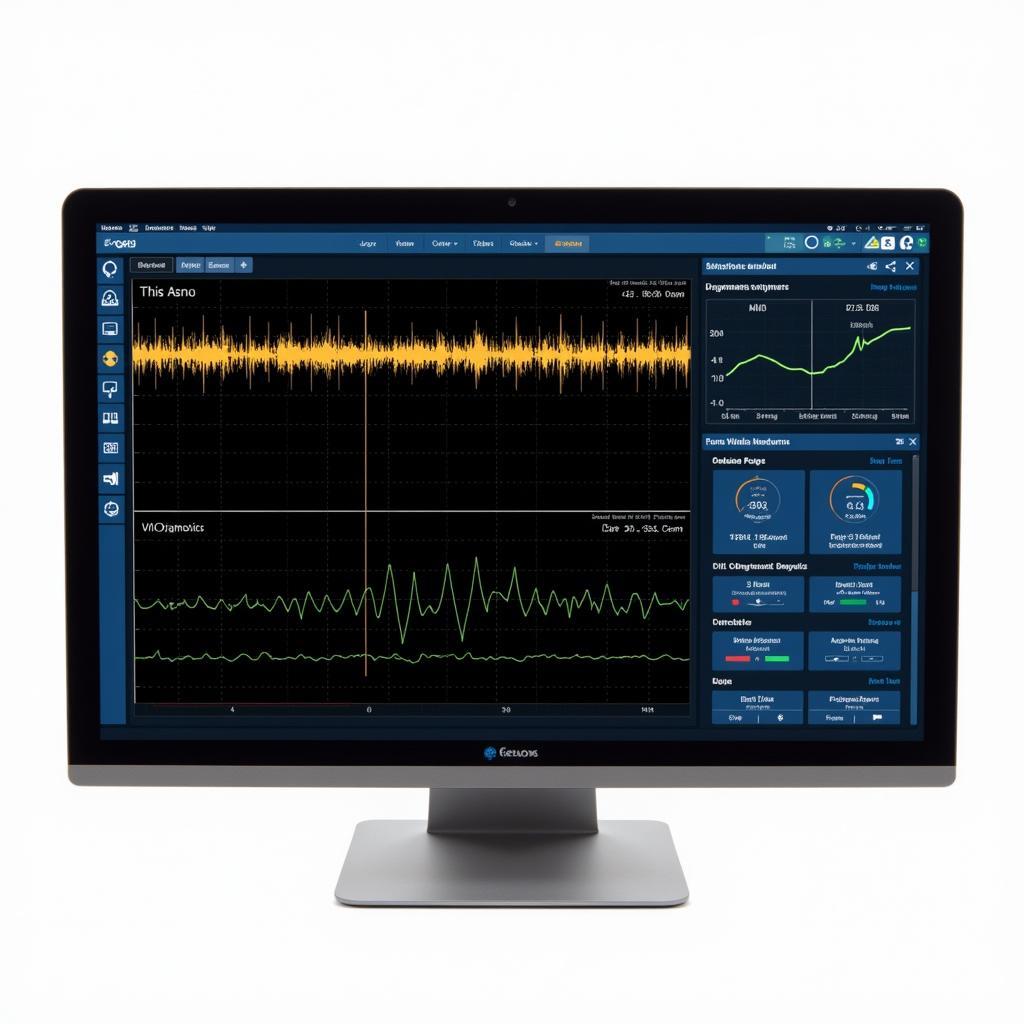Modern vehicles are intricate machines that rely heavily on complex electronic systems. When issues arise, pinpointing the root cause requires more than just a mechanic’s intuition. Enter Dso Diagnostics Car technology, a game-changer in automotive troubleshooting. This advanced diagnostic approach offers a level of insight previously unattainable, allowing mechanics and car enthusiasts to delve deeper into a vehicle’s inner workings.
What is DSO Diagnostics Car Technology?
DSO stands for Digital Storage Oscilloscope, a sophisticated instrument used to visualize electrical signals over time. In the context of car diagnostics, DSOs are invaluable for analyzing the complex waveforms generated by various sensors, actuators, and electronic control units (ECUs) within a vehicle.
Unlike traditional OBD-II scanners that provide limited data points, DSO diagnostics car tools capture a continuous stream of information, enabling mechanics to:
- Identify intermittent faults: Capture and analyze fleeting glitches that might be missed by conventional diagnostic methods.
- Diagnose complex electrical issues: Examine waveforms to pinpoint problems in wiring harnesses, sensors, and other electrical components.
- Verify component performance: Confirm if sensors and actuators are functioning within their expected parameters.
- Validate repairs: Ensure that repairs have effectively addressed the underlying electrical fault.
The Advantages of DSO Diagnostics for Car Owners
While often associated with professional mechanics, DSO diagnostics are becoming increasingly accessible to car owners. Here’s why understanding this technology is beneficial:
- Empowered troubleshooting: With the right knowledge and equipment, car owners can perform their own in-depth diagnostics, saving time and money on unnecessary garage visits.
- Informed repair decisions: DSO data can provide car owners with a clear understanding of the issue, allowing them to make informed decisions about repairs and avoid potential upselling.
- Preventative maintenance: Regular DSO checks can help identify potential problems early on, preventing costly breakdowns and extending the lifespan of a vehicle.
 DSO Diagnostics In Action
DSO Diagnostics In Action
Choosing the Right DSO Diagnostics Car Tool
The market offers a wide array of DSO diagnostics car tools, each with varying features and price points. Consider these factors when selecting a tool:
- Bandwidth: Determines the range of signal frequencies the DSO can accurately measure. A higher bandwidth is crucial for capturing fast-changing signals.
- Sampling rate: Refers to how often the DSO takes a measurement of the signal. A higher sampling rate provides a more detailed representation of the waveform.
- Memory depth: Dictates how much data the DSO can store. A larger memory depth is essential for capturing longer signal sequences.
- Software and interface: User-friendly software and an intuitive interface simplify the process of capturing, analyzing, and interpreting data.
Beyond the Basics: Advanced DSO Applications
For experienced users, DSO diagnostics offer a wealth of advanced capabilities, including:
- CAN bus analysis: Diagnose issues with the vehicle’s Controller Area Network (CAN bus), a crucial communication system for modern cars.
- Protocol decoding: Decode and interpret data transmitted over various communication protocols used in vehicles.
- Signal comparison: Compare captured waveforms against known good signals to identify discrepancies.
 DSO Diagnostics Car Software
DSO Diagnostics Car Software
DSO Diagnostics: The Future of Car Repair
As vehicles become increasingly reliant on sophisticated electronics, DSO diagnostics car technology will play an even more vital role in the future of car repair. Whether you’re a professional mechanic or a car enthusiast, understanding the capabilities of DSO diagnostics empowers you to troubleshoot and maintain your vehicle with greater precision and confidence.
FAQs about DSO Diagnostics Car Technology
Q: Can I use DSO diagnostics on any car?
A: DSOs can be used on a wide range of vehicles, but the specific capabilities and compatibility may vary depending on the make, model, and year of the car.
Q: Is DSO diagnostics difficult to learn?
A: While DSOs are powerful tools, they do require a basic understanding of electronics and automotive systems. Numerous online resources and training courses are available to help users of all levels get started.
Q: Do I need any other equipment to use DSO diagnostics?
A: Along with a DSO, you’ll need appropriate probes and connectors to interface with your vehicle’s electrical system.
Q: What are the alternatives to DSO diagnostics?
A: Traditional OBD-II scanners and multimeter are commonly used for car diagnostics, but they offer a more limited scope of analysis compared to DSOs.
Explore More About Car Diagnostics
For all your car diagnostic needs and to stay updated on the latest advancements in DSO technology, visit DiagFixPro, your trusted source for comprehensive information and expert reviews.
Need Assistance? Contact our 24/7 support team via WhatsApp: +1(641)206-8880 or Email: [email protected]. We’re here to help you keep your vehicle running smoothly.

Leave a Reply